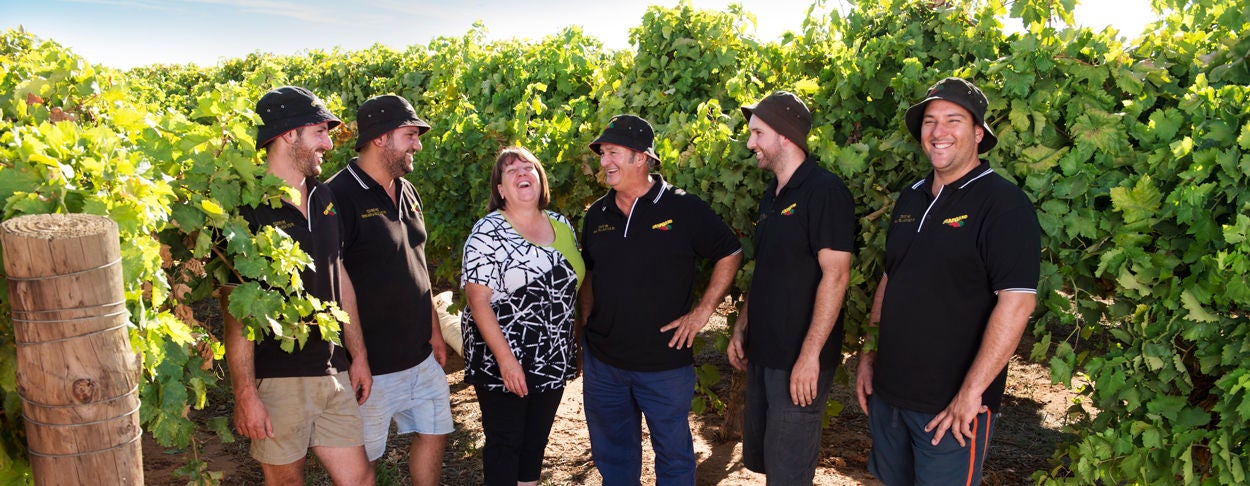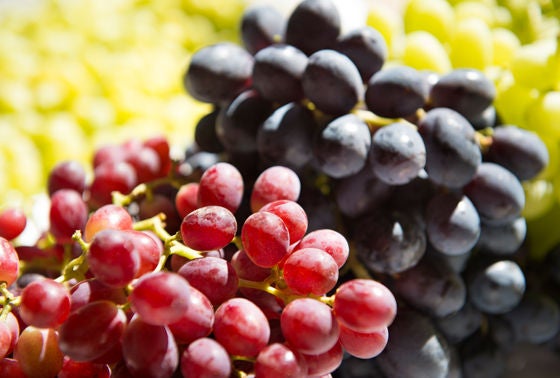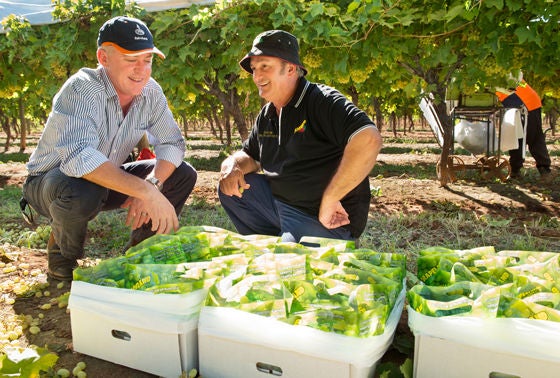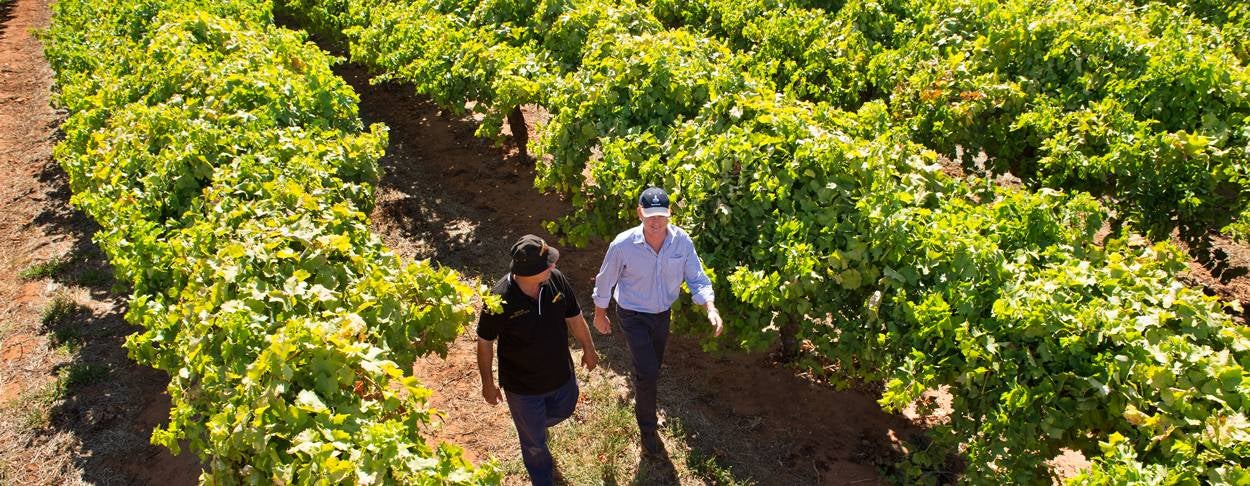Posted by on
13/02/2017
Ninety minutes. It’s the maximum amount of time that it takes for Grapeland table grapes and asparagus to make their way from vine/soil to Grapeland’s state of the art cooling room. Grapeland CEO Sam Costantino says timing is critical to ensure their product arrives in peak condition. “We export approximately 50 per cent of our grapes and asparagus and there can often be a long lead time between farm and consumer,” he said.
“Currently our primary export destinations are China, Japan, Singapore and Hong Kong and the expectations of customers in these countries are just as high as they are here. “We need to ensure that our product looks as good on the shelf in 60 days’ time as it would in two, so ensuring we have a sleek processing system is key to that.”
This drive to ensure a quality product along with increasing production led Grapeland to expand its processing and cooling facilities three years ago. “We currently produce an average of eight million bunches of table grapes and nine million asparagus spears annually,” Sam said.
“To ensure that every single one of those bunches and spears is as fresh as possible we needed to add capacity to our storage."
“We now have more than 70,000 square feet of storage space, including cold rooms with new cooling technology to bring our fruit down to zero degrees in the shortest time possible.”
A family business
The investment in cooling and packaging infrastructure was a significant one and was the latest investment in a business that started out in 1977 when Sam purchased a 20 acre dried fruit farm south of Robinvale in Victoria.
“My father and mother owned a small dried fruit farm on the outskirts of Robinvale and I grew up working on it with my father,” Sam said.
“I did a short stint in banking but it wasn’t where my heart was, I could see opportunities in the table grape industry so I worked until I could afford my first block and then built from there.”
Sam together with his wife Mary acquired additional land over the following years and continued to raise and include their five children in the running of the farm. “All four of my sons are now back working at Grapeland,” Sam said.

“They all have different areas that they are responsible for, Frank is our head agronomist, Joseph is responsible for the asparagus side of the business, Christopher oversees maintenance and engineering and Michael manages our workforce.” It is these separate work foci combined with respect and good communication that Sam says is the key to the family working so well together.
“As a family we’ve always discussed everything but I guess we have formalised the process,”
“We get together quite often and if we are looking at something different we’ll get together and toss ideas around, it has to be a group effort and a group consensus otherwise it won’t work.
“There also needs to be a lot of patience and understanding, in any business people are going to make mistakes and when you’re a family it is sometimes too easy to go off the handle and start pointing fingers. “We try and not get too worked up when one of us stuffs up, because it’s bound to happen to all of us.”

Growing Grapeland
This recipe for an effective family business seems to be a successful one for the Costantinos and from their humble 20 acre beginnings they are now farming over 400 hectares of grapes and asparagus.
For 12 years Grapeland has partnered with Rabobank to achieve its expansion goals. “Moving to Rabobank when we did made sense for us,” Sam said.
“It was the only bank focussed solely on agriculture and was the only one offering an All in One interest only account."
“Having this flexibility in one account rather than having a separate loan and trading account was really important to our business as we were expanding on a seasonal, fluctuating income.
Sam says this flexibility will continue to be important as they look to progress the business.
“With the four boys committed to growing the business there’s definitely plenty of opportunity for us to expand.”
“We definitely want to continue to expand both through additional land and improved infrastructure,” he said. “We are looking at other crops that might work in with what we are currently growing, we’d like to grow two additional crops to compliment the table grapes and asparagus.

